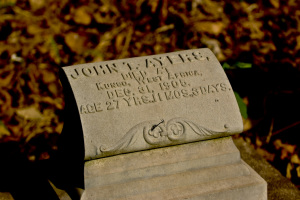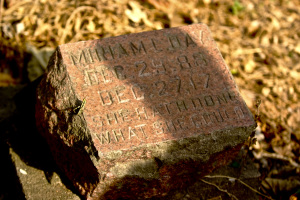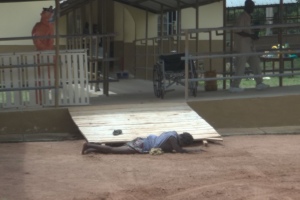Preparing to head back to Sierra Leone in a few days has provided fascinating insights, of my own thought processes, and those of the people around me. It has been an interesting study in fear as well.
Watching America play out a horrific drama in response to the Ebola virus has been at once enlightening, and terrifying. Like waking up and realizing that the people in your house are not actually who you thought you were. Like being betrayed by your own family. I’ve realized that ignorance is no respecter of persons, and doesn’t even depend on the degrees held by the individual. People who never went to school a day in their lives, and PhD’s with multiple certificates hanging on their office wall can walk in equality when it comes to the ignorance and the rash decisions that fear elicits. Fear appears to be a playing-field-leveler.
Why is it that when we don’t know enough about something that is frightening, instead of learning about it and empowering ourselves to fight it, we cower and hide and hurt people instead? This scenario plays out in so many arenas of our lives – race relations, immigration laws, interactions with people with disabilities, Ebola. (Probably a lot of others as well, but these are a few that touch me personally at some level…) It isn’t any wonder that Jesus told us that “the truth will set us free.” It truly does. Fear is a captor. Truth is a liberator.
When you’re heading into a mission that is deemed “unsafe” in some way, people’s immediate question is, “Is that safe?” That’s the wrong question. When did we begin to assume that walking in the footsteps of Jesus was supposed to be safe? Or when did loving someone become a safe activity? Why do we assume that life in general is safe? When, in fact, did we deem God to be safe?
I think that the version of “The Lion, the Witch, and the Wardrobe” that we have was altered from what Lewis originally wrote. I think it went something more like this in the exchange between fearful Susan and the Beloved Mr. Beaver. (Read in your best British accent, please.) “Is he quite safe?” “Safe? Are you bloody mad?? Weren’t you listening to me? He’s a freakin’ lion!!! Of course he isn’t safe!! But he’s good. He’s the King. You can trust him.” (And then Mr. Lewis remembered he was writing for children…)
He is the King. And we can trust Him. We MUST trust Him. But He isn’t safe. That seems dissonant to most of us. It seems that a God that is that powerful should be safe. In fact, we equate the fact that He is not safe with the idea that He must not then be good. Because somehow we equate safe and good. Here is the truth – safe ≠ good.
I’m not sure when this cognitive shift began. I suspect it was somewhat gradual. I believe technology played a part. And I think modern medicine and the chasm of life’s realities between American and Africa increased while the relative distance between them decreased. But here’s the reality. I grew up four miles from a cemetery. It’s not the closest cemetery to the villa ge I grew up in. It’s not the biggest cemetery nearby. In fact, it’s not a cemetery that even gets used anymore, except for visits from missionary tourists. It’s a cemetery full of some of the first missionaries who ever came to that part of Sierra Leone. There are simple gravestones memorializing middle-aged missionaries, twenty-something missionaries, and children. In those days, malaria and yellow fever killed off hundreds of missionaries. Sierra Leone was known as the “White Man’s Grave.” Those missionaries boarded ships with a one-way ticket to the unknown, their few belongings packed in coffins, anticipating their presumed end.
ge I grew up in. It’s not the biggest cemetery nearby. In fact, it’s not a cemetery that even gets used anymore, except for visits from missionary tourists. It’s a cemetery full of some of the first missionaries who ever came to that part of Sierra Leone. There are simple gravestones memorializing middle-aged missionaries, twenty-something missionaries, and children. In those days, malaria and yellow fever killed off hundreds of missionaries. Sierra Leone was known as the “White Man’s Grave.” Those missionaries boarded ships with a one-way ticket to the unknown, their few belongings packed in coffins, anticipating their presumed end.
Did their friends and relatives ask them if it was safe to do that? Probably not. The answer was obvious. Of course it wasn’t safe! And that was the wrong question. They knew the risks, and they took them willingly. Why?
Because. Jesus. is. worth. it.
Should we be reticent to lay down our lives for Him when He laid His down for us? Greater love has no man than that he lay down his life for his friend. We’ve reinvented that verse. We think it means that we are showing great love when we choose to give up our favorite TV show to meet a friend who needs to talk. No – He’s talking about laying down our lives! As in – DEAD. This is not about giving up a convenience or a creature comfort temporarily.
This is serious stuff. In Ebola-affected areas, most of the population is Muslim or animist (or both). Very few are Christian. So you know those thousands of people that you hear about dying of this horrible disease? They are entering a Christ-less eternity. That’s serious. Those 20,000 orphans of Ebola? No one will take them and love them because they carry the stigma of Ebola, even though there’s not a thing that’s dangerous about them. We are commanded to care for the orphans. Those millions of people living under extreme levels of fear day after day after day? They are held captive in their fear, and we are commanded to set captives free. The Gospel is that freedom.
Shouldn’t we just wait until this is all over and then go help? If you are in a building that’s raging with fire, do you want people to wait until the fire is out and the embers are cold before they attempt to rescue you?
Some might wonder if we have a death wish? Absolutely not! I want to see my kids grow up – and most days they want me around too! You know what you will never find me doing? Sky diving or bungee jumping off a big bridge! No way! There is risk in those activities – and the reward just isn’t worth it.
But if I do die in Africa, because I reached the last of the days marked out for me before I was born, bury me in the cemetery with the missionaries of old. And write on my stone “Jesus was worth it.”
Because He is.
(If you want to read a little more along this line, pop over to Desiring God and listen to John Piper explain why “Risk is Right.” Or download his free book by the same title.)
